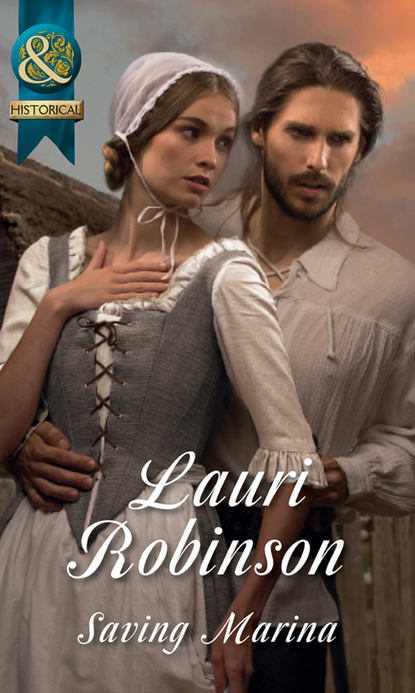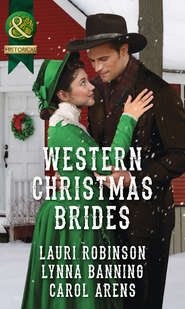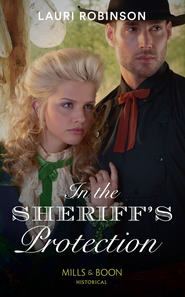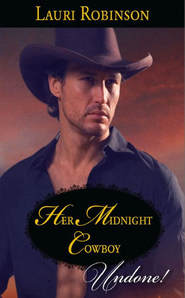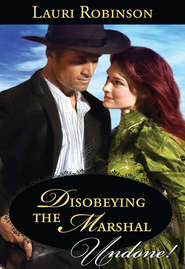По всем вопросам обращайтесь на: info@litportal.ru
(©) 2003-2025.
✖
Saving Marina
Настройки чтения
Размер шрифта
Высота строк
Поля
Her win, if she could call Richard’s gaze being the first to drop, held no victory. Nearly exhausted, she let out a sigh as Richard, looking stormier than ever, swung around and marched away. Her reprieve, that of drawing in enough air to fill her lungs, ended abruptly when the barn door thudded.
Hitching her skirt out of the way of her feet, she scurried around the barn. Richard was inside, throwing the saddle over the blanket he’d already laid across the massive horse’s back. Real relief filled her then. Keeping him hidden until Gracie was well enough to travel would have been impossible.
“I’ll send a message to your ship,” she said. “As soon as Gracie is well enough. You can expect it by the end of the week, I’m sure.”
While threading the leather strap through the cinch ring, he said, “There will be no need to send a message.”
“Very well. If you want to return on Saturday—”
His glare stopped her from continuing. Accepting there was nothing more to be said, she stepped outside the barn door and took several long glances up and down the road. There were no wagons, no lingering travelers from the groups who’d made the trek into Salem Towne to watch the hangings, and for that she was thankful. If he hurried, his departure would go as unnoticed as his arrival had been.
Upon hearing the thud of a horse’s hooves, she turned back to the barn, where Richard led the animal out into the sunlight. She waited until he mounted before saying, “Safe travels to Boston, Captain.”
His glower was chilling. “I’m not going to Boston, Marina. I’m going to the village. Where I’m sure to find someone who’ll answer my questions.”
“No.” Despite the size of the beast, she grabbed the leather chin strap of the horse’s bridle. “You can’t go to the village. No one can know you’re here.”
His laugh was close to sinister. “It’s too late for that. The girl that was here...the one you called Anna. She saw me. Why do you think she scurried into the woods so fast?”
Marina slapped her free hand over her mouth to contain her gasp, and Richard’s tug on the reins freed the animal from the hold of her other hand.
“Please.” It was all she could think to say. “Don’t.”
“I have no idea what you are trying to hide but, rest assured, before the sun sets, I will know. I will have answers to all my questions.”
“They’ll arrest you—”
“For witchcraft?” He laughed. “Let them try.”
His words lingered in the air, echoing in her ears as he kneed the animal.
“Stop! Please!” Hitching her skirt, she started to run but made it only a few steps when a solid grasp caught her arm. She’d have fought it but realized her momentum was already making Uncle William teeter on his good leg.
“I have to stop him,” she said.
“No, child,” Uncle William said. “You don’t have to stop him. She’s his daughter, not yours.”
Her legs threatened to collapse beneath her as the captain disappeared up the road.
“Come inside, Marina,” her uncle said. “We’ll know soon enough what the captain’s fate will be.”
Chapter Five (#ulink_19f7cc0b-4130-56ff-9ec6-3492d4c8029a)
The horse seemed to know what was good for it and didn’t test him this time. Lucky for it. Richard had been taxed enough. Miss Marina Lindqvist would do good to take a lesson or two from the horse. All her talk of witchcraft. The woman must be light in the head. People had been frightened of witches for years. Foolish people, that was. Rational ones realized it was all superstitious. The smarter ones looked for the real cause behind the accusations. There was always something, and he had a good idea of what it was this time.
Richard entered the village, which was little more than a marketplace with a long overhead shelter where members brought goods to share or trade, a tavern and a small church off to one side. The home behind that structure was what caught his attention. Not just because of the crowd gathered there but because the home was twice the size of the church. Neither building, the church or the parsonage, had been here when he’d been in the village years before. With that thought, his gaze went to the west, toward where the home of Sarah and her family had stood. Now there was nothing but an open field planted with a poor crop of rye. He glanced in all directions, trying to verify that he was recalling correctly.
“You there, on the horse. What do you want in our village?”
That voice answered one of his other questions. This was the George Hickman he knew. The man who’d swindled more people than the devil ever hoped to. The same one who was now the reverend of Salem Village. Anger twisted a tight knot in Richard’s gut. Rather than fight it, he chose to use it in his favor.
Upon dismounting, he led the horse to the front of the tavern and tied the animal to a pole before he took his time walking the rest of the way around the building to where he’d get his first good look at George Hickman. It would be George’s first time to get a good look at him, too. The man would remember him. They’d sparred over merchandise in both Barbados and Boston. He hadn’t given in either time, and Hickman hadn’t found another ship captain to shortchange, either, not after the word had spread. However, Hickman’s false charges had forced the Concord to stay harbored for a month, which had cost Richard not only time but money.
“You there, I say!”
“You say what?” Richard asked, stepping around the corner and coming face-to-face with Hickman. He let his never-forgotten disdain fill his tone, along with the anger now rolling in his stomach.
Shock, then spite flashed in Hickman’s eyes. “Tarr,” he snarled. “What are you doing here?”
“I was thinking the same thing,” Richard answered, giving a long look at the man’s black doublet and breeches, as well as the white ruff around his thick neck and his black hat. “What are you doing here?”
George Hickman was a squat man in structure, with a barrel chest and stomach and bowed legs. He tried to make up for his meager height by his attitude, which, as far as Richard knew, hadn’t worked, up until now perhaps. Hickman had inherited a sugar plantation from his father in Barbados and in little more than a few years had lost everything. Demanding top dollar for an inferior product had left him without a way to ship his sugar to markets off the islands, and cruel treatment had forced his slaves into desertion—something few ever did. Their punishment was usually death, but that was also what they’d faced working for Hickman.
After a few years Hickman had landed in Boston, where he’d conveniently inherited a merchandising business from the father of a woman he’d married in that area. There again, his demands had left him without ships to fulfill his orders. That had been the last Richard had heard of him. Then again, he hadn’t cared enough to listen if someone had spoken Hickman’s name.
“The likes of you aren’t welcome here, Tarr,” Hickman hissed.
“I can’t believe the likes of you are welcome here,” Richard replied. A rotten egg never lost its stench, and right now the odor was strong enough to make a grown man gag.
Louder, in order for the other men standing several yards away to hear, Hickman spouted, “Be gone. We have no need for sailors in Salem Village.”
“Good,” Richard answered, just as loud. “Because I’m not here as a sailor. I’m here as a father.”
The alarm that flashed in Hickman’s narrow eyes told Richard all he needed to know. The man had known Grace was his daughter and was behind her condition. Renewed anger mixed with full-blown loathing boiled in Richard’s veins. As much as he’d like to unleash his fury, letting it control his actions wouldn’t get the results he now wanted. Exposing Hickman for the impostor he was would be something to relish. He’d make sure it was done correctly. He owed it to his daughter.
Hickman’s nostrils were flared and his face turned redder with each silent moment that passed. Other than allowing his hands to ball into fists, Richard refrained from permitting his internal rage to show. This act was unlike him, but he had his daughter to consider. Righting the wrong that had been thrust upon her wouldn’t be solved by beating Hickman to a pulp. Even though it would provide immense satisfaction.
With a great deal of emphasis, Hickman waved a hand and shouted, “Be off with you, stranger, before the wrath of God strikes you for attempting to foil our blessed community!”
Richard pulled his lips into a tight grin and took a step closer to hiss, “Shout all you want. A pulpit won’t protect you from me.”
The man’s thick jowls shook as he stepped back. His beady eyes glanced toward the onlookers before he hoisted both arms into the air. “I am an ordained messenger of the Almighty God!”
“Ordained by whom?” Richard asked. “Yourself?”
“Our good reverend attended Harvard University,” a tall man replied as he approached. “You’ll do as requested, sir, and exit our village.”
Several others of the group were moving forward, and the conceited grin growing on Hickman’s face said the man thought he’d won. Richard considered telling him no army of cronies would frighten him or change what he was set on doing; however, he had time and would relish watching the other man squirm a bit. If these men were supporting Hickman, he needed to know why. Still, he wasn’t going to let anyone think they worried him—because they didn’t.
Eyeing each man, including Hickman, individually and intently, Richard finally moved his attention to the one who’d spoken. “I will leave your community when I’ve concluded my business.”
With that, he turned and made his way back around the building. Ignoring the mumblings for what they were, he didn’t retrieve his horse but instead entered the tavern. Puritans didn’t abide drunkenness, but they drank ale from sunrise to sunset. As with almost every community ever established, a tavern was the first building erected, even before homes or a church.
Hosting only two windows and a few short candles, the interior was dark and dank, but that hadn’t stopped men from gathering around tables and emptying tankards a barkeep kept full using a pitcher he refilled from the line of barrels resting upon a rack on the far wall. Richard walked across the room, which was unusually quiet compared to most taverns he entered, to where a man stood behind a long board stretched between two barrels.
Without a word, Richard laid down a coin. Using one hand to slide the coin across the wood, the barkeep grabbed a wooden tankard with his other hand. The coin dropped into a hole at the end of the bar, clanking against others when it hit the bottom. After pouring ale into the cup, the barkeep set it before Richard.
Giving the droopy-eyed man a nod, Richard lifted the cup to his lips. The ale was strong and bitter, stealing his breath as he swallowed. He turned then to survey the men at the tables. A few were returning his gaze. Curious, no doubt. He didn’t let his sights rest on them. Answers were what he needed, not questions.





